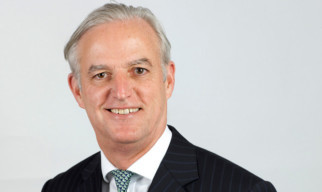The chief executive of major Scottish public transport provider FirstGroup saw his pay package soar by more than £900,000 last year.
Details of CEO Tim O’Toole’s £1.986 million remuneration package were revealed yesterday as the north-east rail and bus group published its 2014 annual report.
The bulk of the uplift, which came in a year in which the group saw pre-tax profits increase from £28.9m to £58.5m, came from a £600,000 award under the terms of the Executive Annual Bonus Plan (EABP).
Mr O’Toole opted to take the bonus, which is made up of 50% cash and 50% in the form of shares deferred for three years, having waived it the previous year.
He also received £324,000 during the year as a result of a 2011 retention share award vesting in November.
Mr O‘Toole’s basic salary remained static during the year at £846,000 but taxable benefits of £37,000, including a £12,000 car allowance and £16,447 for private medical insurance in the US, and a pension allowance of £179,000 pushed his total package to just shy of £2m.
The report also detailed an £80,000 rise in finance director Chris Surch’s 2014 package.
Mr Surch’s basic salary increased from £263,000 to £450,000 during the year while his benefits, pension allowance and bonus entitlement increased by £130,00 to £357,000 in the period.
The annual report also noted a £237,958 payment made to Mr Surch during 2013 as compensation for him forfeiting a cash bonus from previous employer Shanks when he joined FirstGroup on September 1 2012.
The firm employs around 117,000 staff across its five major operating units First Student, First Transit and Greyhound in America and UK bus and rail.
The largest unit by revenue is its British rail division, which includes the First Scotrail franchise in Scotland, which saw sales of £2.87 billion last year.
However, the rail unit delivered the lowest margins of all five division and the greatest contribution to the group’s £232.2m annual operating profit figure was First Student with a £93.5m return.
In his strategic review for the annual report, Mr O’Toole said in recent years the firm had failed to deliver the financial performance to reflect its market leading positions.
He said that as a result the group had repositioned itself for improved growth and had moved to strengthen its balance sheet to give the flexibility to invest in its transformation programme.
Mr O’Toole said: “We are confident that successful execution of our strategy will deliver our key medium-term financial targets, which are to increase group revenue (excluding UK Rail) at a faster rate than the economies we serve, improve margins in First Student and UK Bus to double digit levels and in Greyhound to 12%, and to achieve a post-tax return on capital employed in the 10 to 12% range for the group as a whole.
New company chairman John McFarlane, who succeeded Aberdeen Asset Management chief executive Martin Gilbert who stepped down from the board on December 31, confirmed there would be no dividend payment to shareholders for the year but said he believed the firm was on the right track.
“As I have spent time reviewing and challenging the strategy of the group, my early impression is that this is the right one for current conditions,” Mr McFarlane said in his annual report statement.
“We will, however, continue to review other options that are financially compelling, as I work with management and the board over the coming months.”
